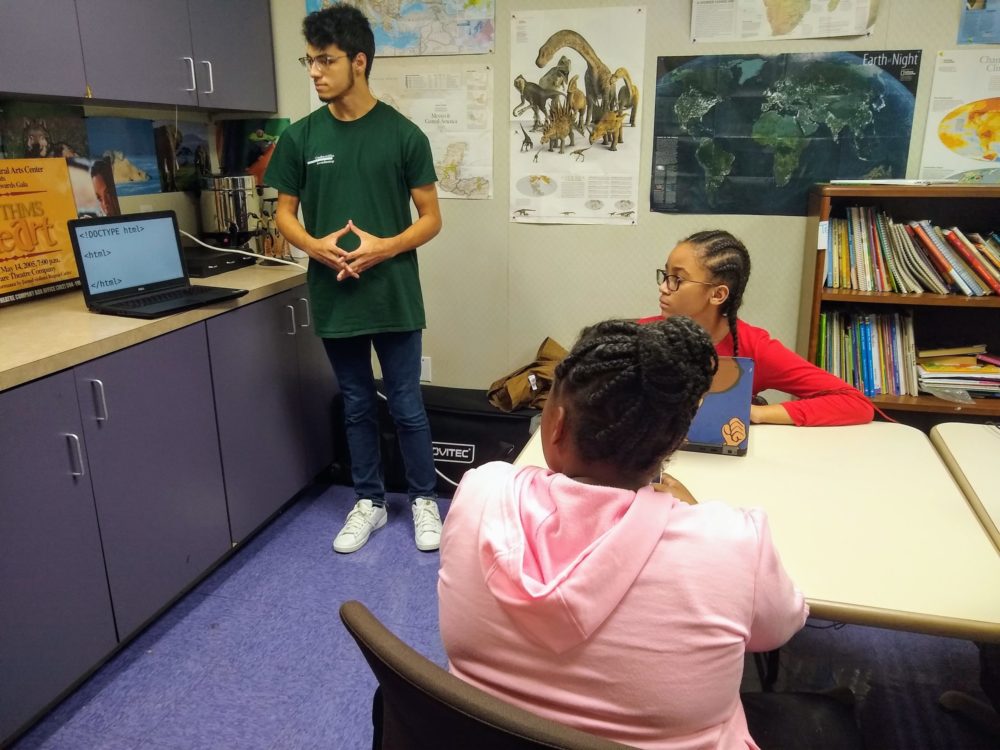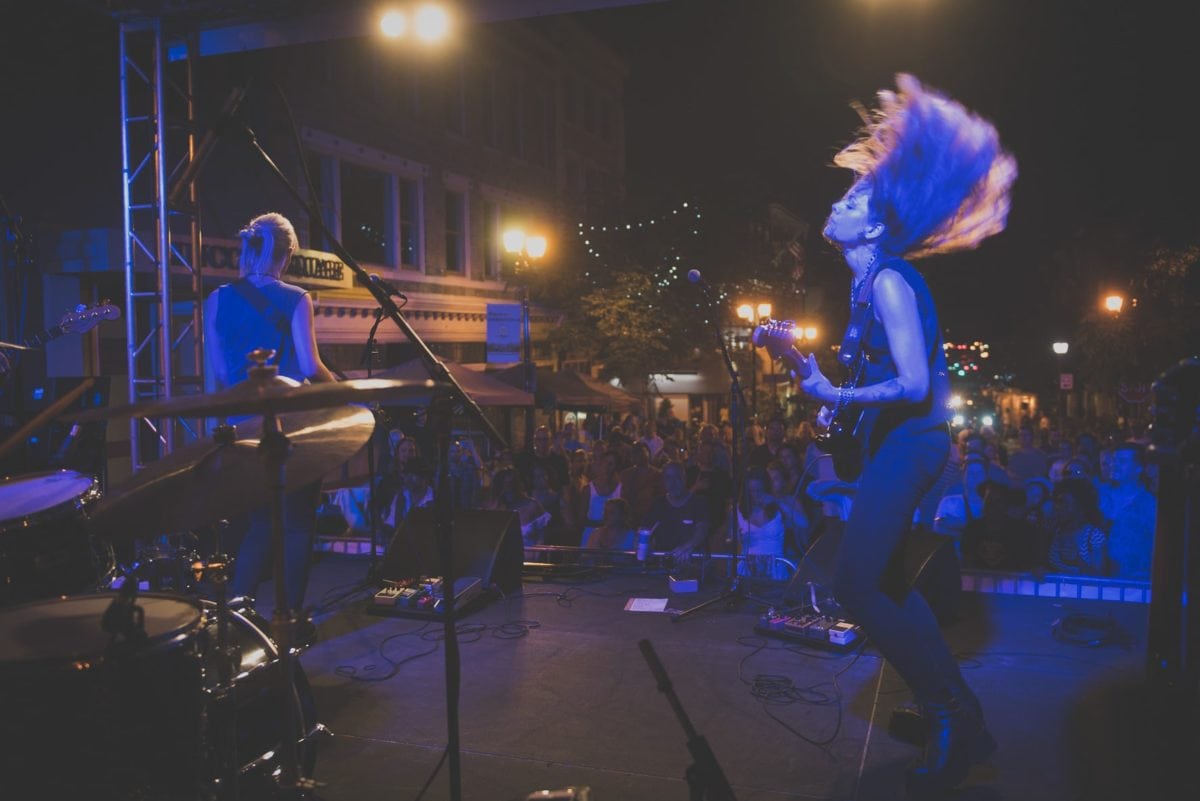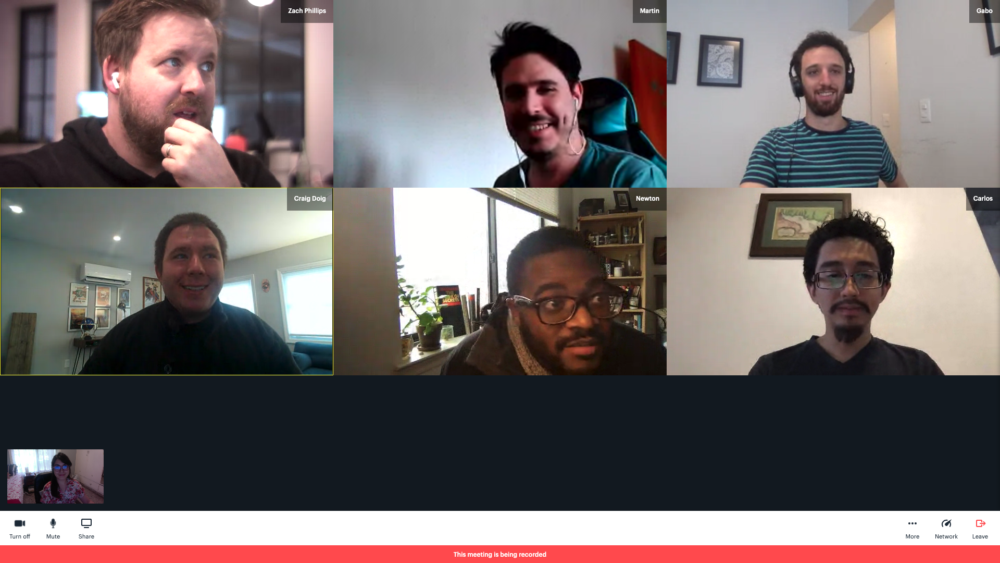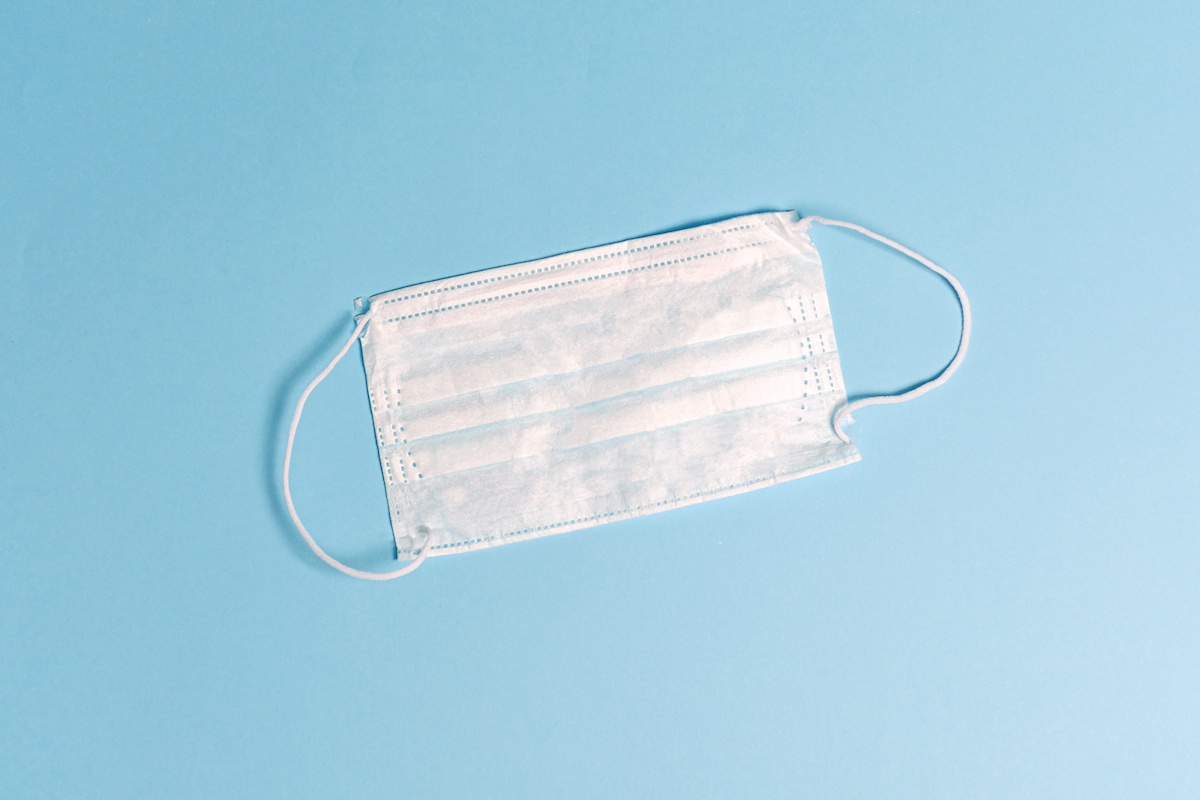One year ago, everything changed.
I remember the last events I covered in person before the COVID-19 lockdown. There was the grand opening event for the Chemours Building on University of Delaware’s STAR Campus. People were just becoming aware of COVID. Gov. John Carney and Sen. Tom Carper were in attendance; I remember them elbow-bumping people in greeting. I accidentally gave a friend I hadn’t seen in a while a hug, and instinctively shook another person’s hand. Chemours was as prepared as it got in March 2020: There were big bottles of hand sanitizer every few feet throughout the building. But there were no masks, and no social distancing beyond trying to avoid handshakes and hugs.
It felt weird at the time, and it’s weird looking back on it.
The same week, I visited Christina Cultural Arts Center to cover its HeArt Under the Hoodie program’s coding class by Coderrific Academy (a startup that shut down a few months into the pandemic). Most of the kids had no school that day because one of the staff members at the Community Education Building, where many of the program’s students attended Kumbaa Academy or Great Oaks, had returned to the building after traveling to a high-risk country without quarantining. The building was being deep-cleaned, with plans to open up again in a couple of days. Kids packed into the small room; usually, the 10 laptops Coderrific brought for the students was enough. That day, almost every laptop had to be shared. The kids were eager to learn. No distancing, no masks.
It’s shocking now, but at the time, everyone thought things were going to go back to normal quickly. Even if we did lock down like in Italy to prevent the spread, we figured, it would be over in a couple of weeks.

Coderrific instructor Noah Cedeno teaches web development to kids at the Christina Cultural Arts Center two days before the COVID-19 lockdown. (Photo by Holly Quinn)
My adjustment to working at home was fairly easy. I had always worked remotely for Technical.ly, since our main office is in Philadelphia. I had worked out of The Mill some days, but often from my home office, too. The lockdown meant no more coworking, and conducting all interviews from home — no more grand openings or classroom visits. Now, nearly everything was on Zoom. It seemed like it should have been easier to do everything from home, with no SEPTA trips to Philly for team meetings, no drives to Newark, just sitting home and clicking a meeting link. I would learn that Zoom burnout is real, and how to cope with it. (Remembering that phones are still a thing helped.) Periodically, after the total lockdown was eased, I started to interview in person again — masked and socially distant, of course.
Topic-wise, there was a shift in 2020 where talking about racial equity — and the fact that we in the U.S. still don’t have it — became a moderately less taboo subject. That has opened up honest conversations in news publications and, no less impactfully, on social media. (Remember how #WhatPublishingPaidMe exposed separate pay scales for white and Black authors?) A lot of things will never go back to the way things were before March 2020. This is one thing that never should.
All over the state, businesses struggled, pivoted, and in some cases, thrived through “these unprecedented times.” We asked several of them about their pandemic journey, one year on. Here are some of their answers.
Facing change
The Mill, naturally, was forced to adjust its practices immediately.
“Our model is based on multiple people from multiple households using one space,” said Rebecca Parsons, director of operations at the coworking network. “So, we have touchless thermometers, an online platform to check in with members regarding their health, we have partnered with technology developers to calculate risk, and we have invested a lot in PPE for both our staff and our members. Like a lot of companies, we were coming off an all-time high as far as occupancy goes. We maintained progress on our Concord build-out, and it successfully opened its doors in the middle of the pandemic.”
Other place-based business plans were upended, too.
“It changed everything,” said Irene Castañeda, owner of Veronica’s Kitchen, who was accepted into Wilmington Alliance’s new kitchen incubator project. “My plan was to open a small restaurant. I think I have to start all over again or maybe, if I can get some loans, I can be able to open a small coffee shop.”
Restaurant suppliers were hit hard.
“On March 16, when the governor shut down all the restaurants in Delaware, we lost all our customers in one shot,” said Ajit George, founder of Second Chances Farm, an indoor hydroponic urban farm in Wilmington’s Riverside neighborhood. “Before COVID, our plan was to sell exclusively to restaurants. We had to come up with a brand new plan to sell our produce and herbs which involved setting a farm-to-table home delivery.”
Few industries lost as much business as the live entertainment industry.
“We lost about 80% of our business,” said Gail Dillman, cofounder of Gable Music Ventures, whose biggest event is the annual Ladybug Festival. “We were planning on our biggest year ever with events across Delaware and into Pennsylvania. Most events were cancelled.”
It was an unthinkable learning experience for a business that relies on large gatherings: “COVID is a reminder to work creatively and manage to a bottom line,” she said. “We see our business as multi-dimensional now.”

The Ladybug Festival in 2017. (Courtesy photo)
The mass pivot to virtual everything has been far kinder to the digital entertainment industry. Futures First Gaming was just getting started when COVID hit, forcing the team to cancel in-person events.
Still, “our company has grown immensely since March of 2020,” said cofounder Malcolm Coley. “We actually pivoted tremendously, and the modification of our company actually helped us to grow it as our company relies on esports. COVID has literally put us in a better position to scale our business up. With the world being virtual, a lot of people resorted to gaming in order to stay connected with loved ones, students, children, and friends. Not only that, we are in a space to teach entrepreneurship and tech through our programming, which is STEM Accredited.”
Anura Solutions, a cybersecurity company based in Middletown, saw a slowdown in business in 2020 that picked up in November.
“We were not able to implement all of our sales plans,” said Kyle Buzzard, Anura’s SVP. “There was too much uncertainty for potential customers to make changes.” But at this point, they’ve gotten close to back to “normal”: “We’ve had a couple of stints of WFH, but have been in the office since July. The biggest thing is the masks and social distancing in office, and the lack of external team-building.”
For Buzzard, it was less going back to something familiar as it was an eventful transition to a new job.
“I was hired to start March 18, 2020, and the company went to work-from-home on March 15,” he said. “It was crazy trying to get all the systems integrated into my own devices, so I had three different devices for the first almost four months working here until we could get back in the office and fully install everything on my work laptop.”
For Adam Stager, founder of TRIC Robotics and developer of an agricultural robot that autonomously treats crops with UV-C light (and winner of the 2020 Swim with the Sharks), the lockdown meant more remote work and delayed pilot tests in the field.
Another Wilmington company, Markee, came into existence during the pandemic to meet a need — namely, a better, more customizable platform for virtual meetings and events.
“We were really born out of the pandemic,” said its CEO, Craig Doig. “I think the truth is we really shaped our company around COVID-19 rather than adapt. Starting a company without being able to form any initial relationships in person, with zero travel was the main challenge and something I never thought possible.”

Here’s what a Markee meeting looks like. (Courtesy screenshot)
Pressing needs
One thing we really wanted to know: What would make recovery from the pandemic easier? What do you need now, whether from the state or from the community?
“Startups are much more vulnerable to failure even without COVID,” said George of Second Chances Farm. “I wish there was a program from the state geared to help startups like ours who are focused on hiring vulnerable people like returning citizens. The one-size-fits-all approach doesn’t work.”
“The answer to this question is twofold,” said The Mill’s Parsons. “Understanding of companies’ individual situations is key. Not every small business is the same, and those of us who are still around continue to struggle for various reasons. It is a matter of time as well. People make their own choices when it comes to venturing out into the world. Although we are beginning to see a slow increase in interest, we have not gotten back to our pre-COVID levels.”
The return of public events is a business need that is anticipated, not just by businesses like Gable, but by the cyber-oriented Anura as well.
“Events have always been a big source of leads for us, so just speeding up the general opening [would help],” said Anura’s Buzzard.
And Futures First’s Coley is looking toward IRL gatherings to expand the startup’s reach.
“Right now, currently, we need a building where we can facilitate our Futures Dome with an esports facility that would bring all things tech and esports to the Delaware area,” he said.
Looking forward
The Mill, for one, is taking the long-haul approach to a “post-COVID” world seriously, and looking to a future where people can work communally, without pretending that viruses will be a non-factor.
“We are currently in the middle of [developing] a custom-built solution for our desk and community members to promote a safer and more healthy environment,” said Parsons. “This solution is built to last, so you will be seeing sneeze guards around our open seating areas long into the future. There will always be health concerns, so we are taking the necessary precautions for preparedness.”
The pandemic forced honing certain skills that will carry over beyond this all-virtual era.
“We really tightened up our video presentations and learned a lot on that front,” said Buzzard. “I suspect most of those changes will remain in place.”
Both Gable Music Ventures and Futures First Gaming look forward to the return of in-person events.
“We plan to start doing in-person events as we transition into a post COVID world,” said Coley. Meanwhile, “knowing that we can have large outdoor gatherings this summer would be very helpful, both from the State and City,” said Dillman.
If you would like to share your experiences with navigating COVID-19 restrictions as a business, you can get them to us via this form. Answers may be used for a future article about COVID-19 economic recovery.
Before you go...
Please consider supporting Technical.ly to keep our independent journalism strong. Unlike most business-focused media outlets, we don’t have a paywall. Instead, we count on your personal and organizational support.
Join our growing Slack community
Join 5,000 tech professionals and entrepreneurs in our community Slack today!

The person charged in the UnitedHealthcare CEO shooting had a ton of tech connections

From rejection to innovation: How I built a tool to beat AI hiring algorithms at their own game

Where are the country’s most vibrant tech and startup communities?


